International Community Development Profile: Simda Kikoti Family in Tanzania
In this series, families in the Reaching Children’s Potential (RCP) Demonstration Program in Tanzania explain how their participation improves their lives. Global Volunteers’ RCP Program engages short-term volunteers to help parents deliver essential services improving health, eradicating hunger, and enhancing cognition – with the goal of eliminating child stunting in the Ukwega Ward and throughout Tanzania. Through RCP, families obtain the nutrition, health care, knowledge, technology, and encouragement needed to combat stunting, and to ensure their children can realize their full potential. The RCP Program is a child-focused, parent-driven, family-centered, and community-led comprehensive effort. It begins with pregnancy, and continues through the 18th birthday, with a focus on the first 1,000 days of life. Read Simda Kikoti’s interview about the RCP Program here.
We’re interested in learning about your background and where you are from, Simda.
I was born and raised in Kimara, which is the next village after Ukwega. I moved to Ukwega after I was married because my husband is originally from Ukwega. I completed Standard 7 in primary school as did my husband. We farm as our source of income. We mainly grow beans and corn, but also bananas, avocados, yams, cassava, and vegetables. We also keep chickens and ducks to sell. Ukwega is a very nice place with fertile land. Many crops can be grown here. I appreciate Ukwega more than my original village because of the land. Kimara is not as fertile as Ukwega.
What is your daily routine like?
I always wake up at 5:00 in the morning and conduct domestic activities like cleanliness, fetching water (which is about ten minutes from here), preparing my children for school, and preparing breakfast. After that, we go to the fields where we spend most of our time. When I get time to relax, I just stay at home and make up stories with my children and my husband sometimes, if he is present.
Can you tell us a bit about your children and their personalities, Simda?
Tumpe likes to keep environments in a clean manner all the time. She really likes cleaning. Naima likes to study. Tumsifu likes farming activities. Her favorite thing to do is collect firewood. Milki seems to be a hard worker because when we stay at home, he always finds something to do. When we go to the farm, he cries because he wants his own hoe. So we have made a small hoe for him to use when we go to the farm. My children who are in school have normal performance, although I have noticed that since they started eating the Rise Against Hunger meals at school, they have become more active. I hope they will keep on improving because they now go to school early to get the meals first before they start classes and at the end of the school day as well. The meals motivate my children to attend all the class sessions and allow them to stay active. We are learning so much from the program. I hope we will be able to help our children reach their dreams in the future.
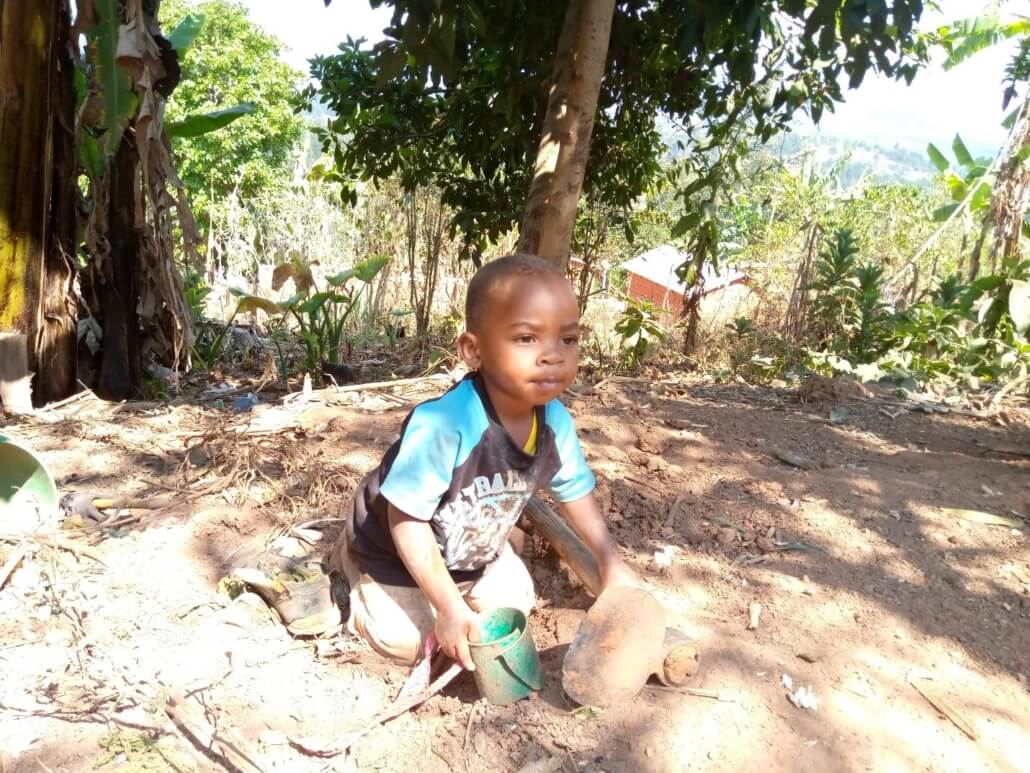
How did you choose your children’s names?
Goima: As for our children’s names, “Tumpe” is a Swahili word which meals “We give”. Since she is the first born, she belongs to God and we gave her to God. With Naima, I don’t actually know the meaning of her name. “Tumsifu” means “Let’s praise”. We were praising the Lord because he gave us a third daughter. “Tuliza” means “Keep calm”. We were keeping calm about having a fourth child, not knowing if we would have a son or another daughter. And then there came the last one, who was a son. We gave him the name “Milki” which means “ownership” or “reign”. We chose this name because he is the only son. I want my children to be well educated. My parents did not have a chance to send me to school, but I want my children to have access to better education and be stable economically in the future and help us when we get old.
You mentioned that your children eat Rise Against Hunger meals at school. I know you and Milki also eat these meals at home, Simda. What do you think about these meals?
The meals are very important and helpful to me and my child because since we started eating them, our health is good. I feel very strong when I eat the meals. Milki likes the Rise Against Hunger meals more than any other food. Sometimes he might refuse all other foods and ask for Rise Against Hunger meals only. Milki and I eat the meals twice per day, and so do my two girls who are in primary school.
Along with Rise Against Hunger meals, we eat other foods like ugali, rice, beans, vegetables, sardines, fish, meat, potatoes, yams, cooked bananas, vegetables, and fruits, mainly avocados and bananas. But Milki likes the Rise Against Hunger meals the very most. When I cook the meals, I only add a little salt and oil. We always prepare three meals per day. I usually make sure Milki gets something to eat between meals, so it might happen that he eats even five times per day.
I’m also happy that Milki’s weight has become stable because he was suffering from regular seizures every month and this made his weight go down a little bit. I decided to take him to Ipalamwa General Clinic and he got medication and the doctors instructed me on how to prevent the situation. I was also advised to feed him well, so with the meals I hope his weight will be even more stable. Currently, he is doing very well and it’s been three months now since he had a seizure. He used to have them many times a month. I’m happy that he is doing very well.
What has your experience at the Ipalamwa General Clinic been?
The services at Ipalamwa General Clinic are great. I’m happy when they give advice if they notice any poor development of the baby. They always take time with a parent to discuss and offer advice to help your child grow well. It is not all about treatment, but they also offer productive advice.
How did you implement using the hand-washing station with your family, Simda?
The hand-washing station has been very helpful since day one. I’m happy I learned about hand hygiene and hand-washing stations because we used to get sick because of something that we could prevent by ourselves. We used to all wash our hands in the same basin with the same water, which was a huge risk. But when I learned about hand washing and using running water, it was very helpful. When I first learned about the hand-washing station, the first thing I did at home was to share the information with my family. I’m happy that my husband was very receptive and we both helped our children to make sure they washed their hands regularly, and especially at the important times. I believed that this might be a good practice. I always believe that there is always a truth in something you have never heard about. So I just decided to start the practice and see if it will be helpful and, of course, it has been helpful. Now it is very rare to find one of the family members getting sick as it was before.
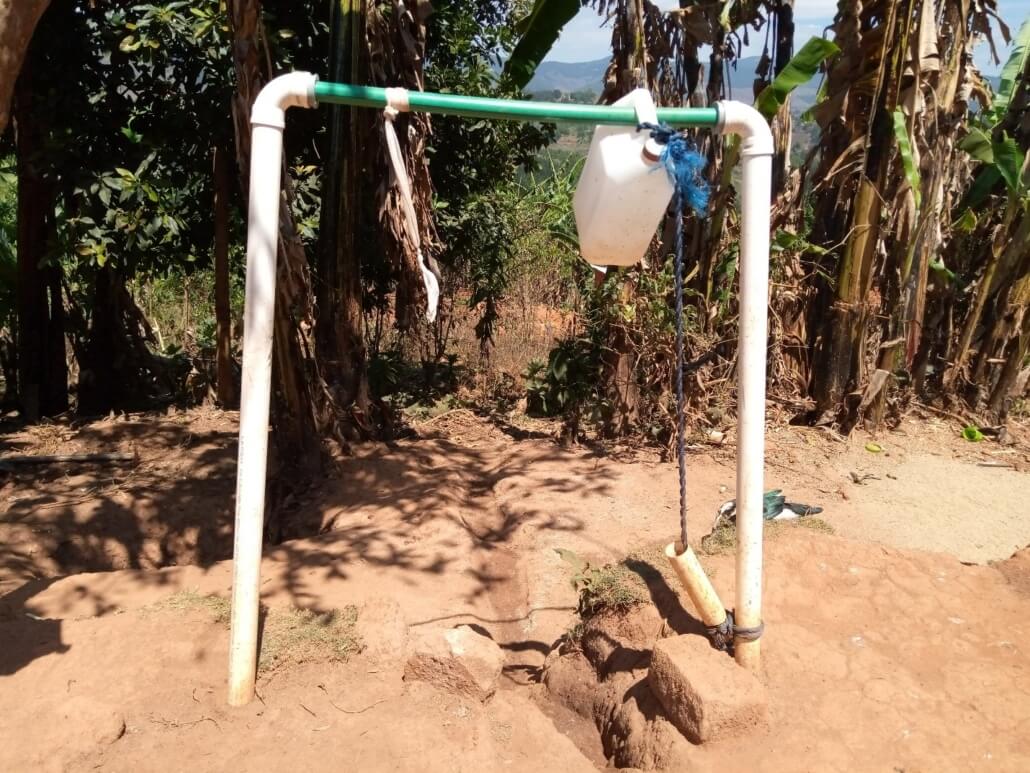
“When I first learned about the hand-washing station, the first thing I did at home was to share the information with my family. I’m happy that my husband was very receptive and we both helped our children to make sure they washed their hands regularly.”
– Simda Kikoti, RCP Mom
What are the personal changes you’ve made in your life since joining RCP that have resulted in better health for you and your children? What are you doing differently now?
I have made many changes in the way I feed my youngest, Milki. I used to feed him ugali at inappropriate times because I thought it was normal. That is the way I did it with my other children. It’s not like I had no access to other good food for my child. I had a variety of the foods that I was growing, but I wouldn’t often give that variety to my children and it was because I didn’t know the importance of feeding my children a variety of foods. But when I attended the workshop on nutrition, everything changed. Since then, I feed my children, especially the younger one, a variety of foods throughout the day. So I have changed a lot in this matter and I see good growth in Milki. He is very active.
I am also a member of the women’s co-op here in Ukwega. Truly the co-ops have been very helpful because we learn different skills from our facilitator that we did not know before and these skills will be helpful in the long term. I’m glad that now I’m able to make soap, tie dye, and conduct a business and track profits since we sell sardines. The co-ops are very helpful and I hope I will still learn more.
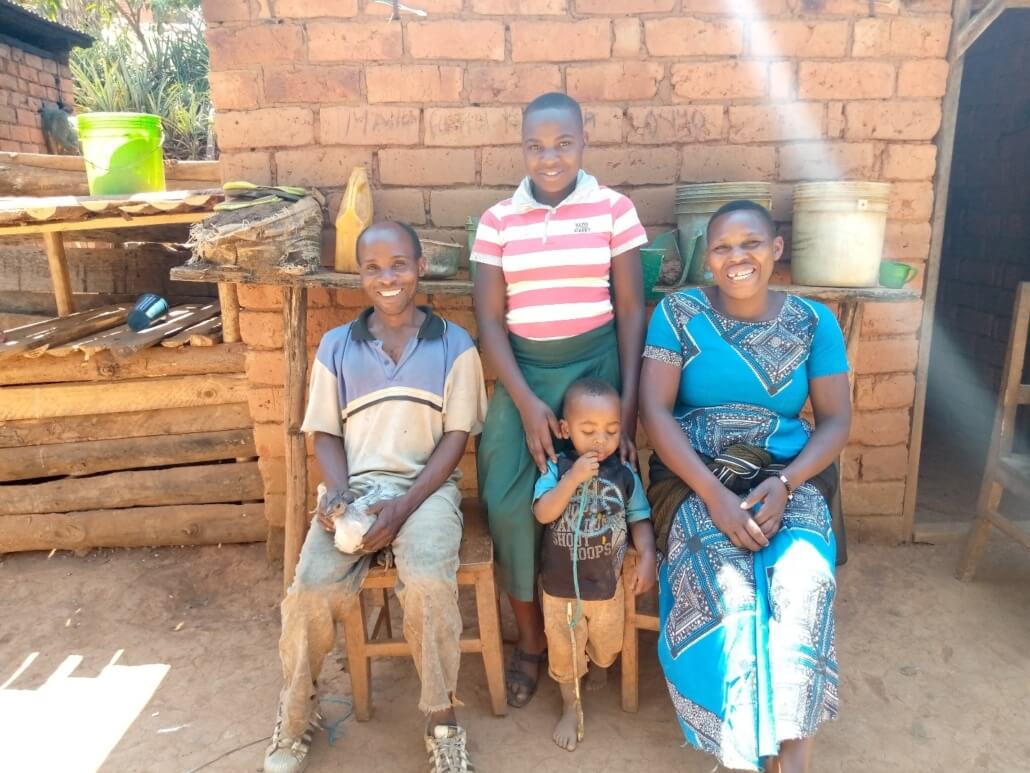
“Truly the co-ops have been very helpful because we learn different skills from our facilitator that we did not know before and these skills will be helpful in the long term.”
– Simda Kikoti, RCP mom
In what other ways as you educating yourself about improving health, nutrition, and cognition?
I always take time to sit with my family to teach them what I have learned from the workshops for the benefit of the whole family. This has been very helpful to me and my family as we are trying our best to transform our lives.
What are your family’s biggest challenges or struggles? What do you hope for in the future?
Our biggest challenge is financial problems. We have failed to pay school fees for Naima, who is my fourteen-year-old daughter. She was in Form 3, but unfortunately she couldn’t attend any more because she was studying in private school and it reached a point that we failed to pay for her school fees. We wanted to enroll her in the government schools, but the law does not allow a student from the private schools to start attending a government school. So currently she is just at home, but we have a plan to send her to the technical school when I get money. Currently we are working hard to make sure she gets to the technical school by January. In the future we are hoping to buy more land so that we can produce more crops to sell.
What are you most proud of in your family?
Goima: I’m proud of my children and I love my children because there are some couples who are struggling to have children for a long time now and they do not have one. I feel very lucky and proud of my children. I feel very happy when my children are helping us in some of the domestic activities when they have time. It is really encouraging.

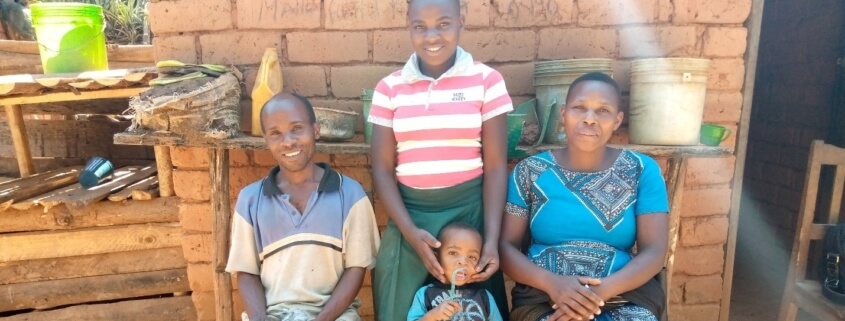
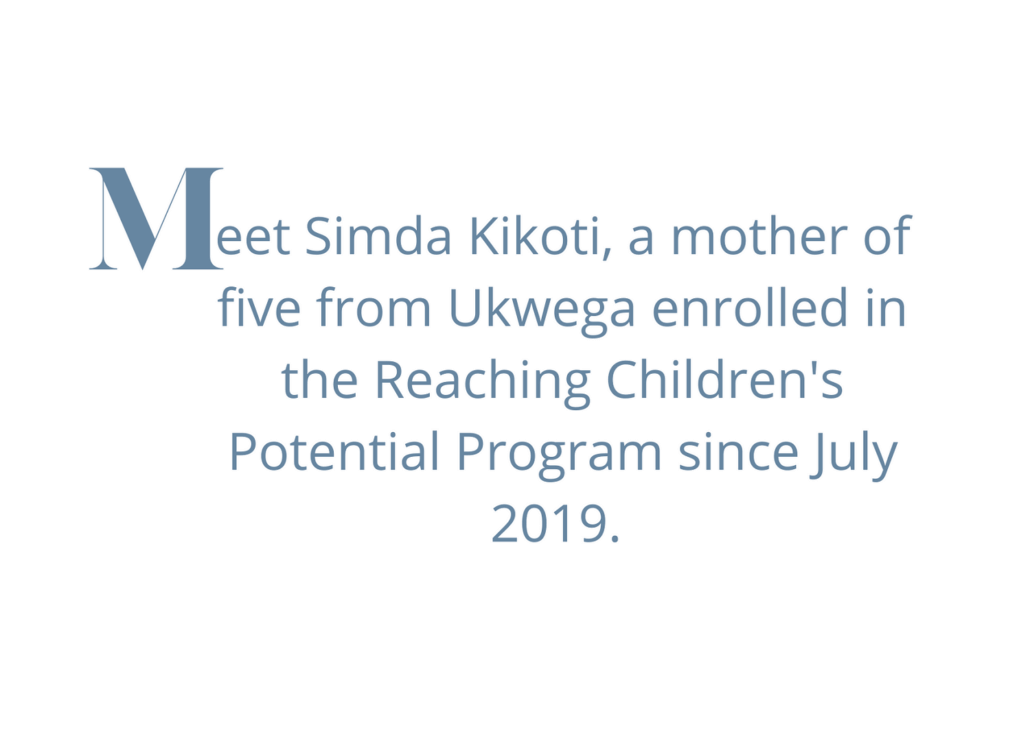
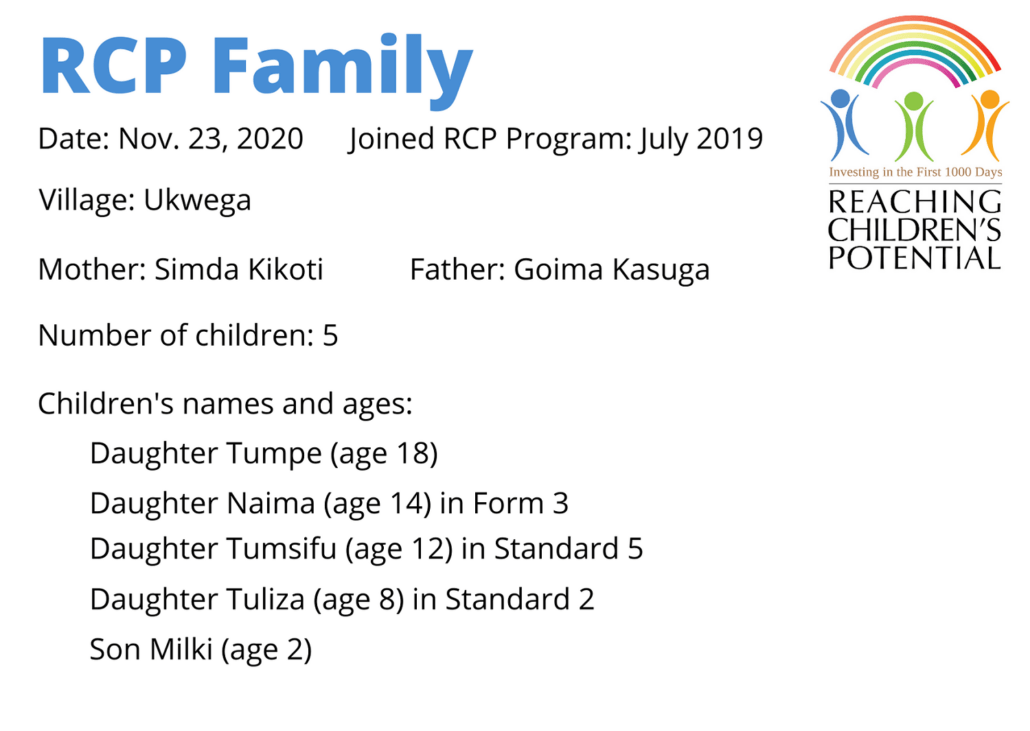


Leave a Reply
Want to join the discussion?Feel free to contribute!